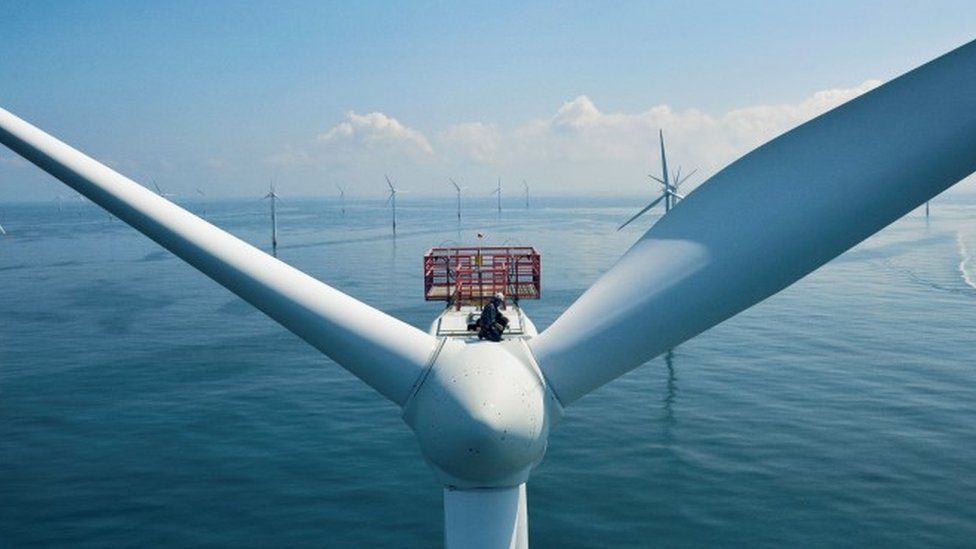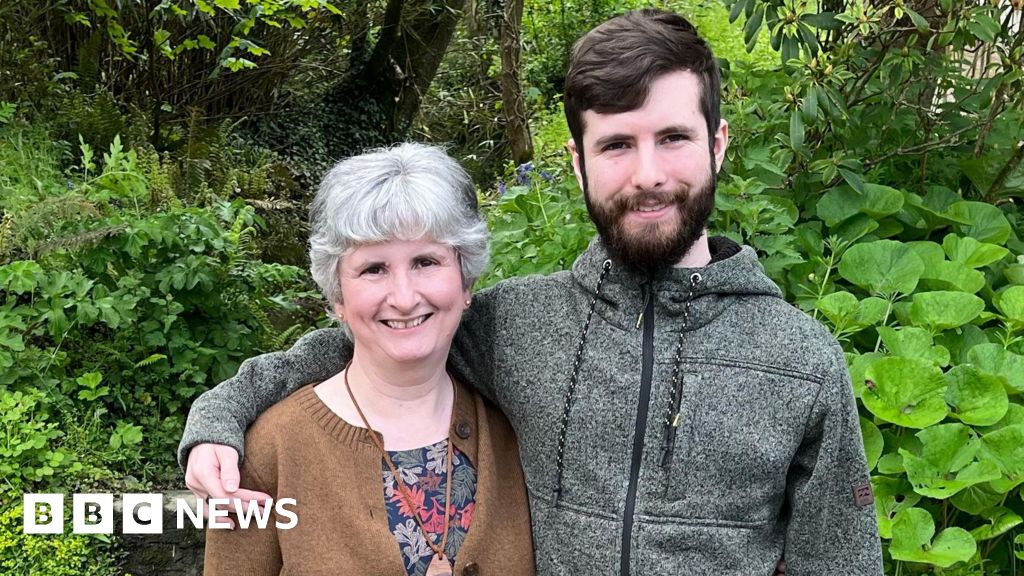ARTICLE AD BOX
 Image source, Vattenfall
Image source, Vattenfall
Vattenfall has shelved plans to develop the Norfolk Boreas offshore wind farm after winning the contract last year
By Andrew Sinclair & Katy Lewis
BBC East political correspondent & BBC News, Norfolk
Work has stopped on one of the UK's largest offshore wind farms after its developer said it no longer made financial sense to continue.
The government has a target of doubling wind capacity by 2030 and a policy of hitting net zero by 2050 - so what does the decision mean for the UK's renewable energy industry?
What has happened and why?
Swedish energy giant Vattenfall has announced it is to shut down development of the Norfolk Boreas site, off the Norfolk coast.
CfDs effectively guarantee a fixed price for the electricity produced for 15 years. It meant that if prices were low, the companies would get a subsidy. If prices rise, the gains must be paid back.
But Vattenfall said it had seen its costs, driven by inflation, supply issues and rising wages, soar by 40%.
The money the government had agreed to pay them, the firm said, would not cover these increased costs.
Chief executive Anna Borg said: "Conditions are extremely challenging across the whole industry right now, with a supply chain squeeze, increasing prices and cost of capital, and fiscal frameworks not reflecting current market realities."
What does it mean for other projects?
The Swedish energy giant blamed market conditions for its decision to shelve the Norfolk Boreas plan
The company said two other Norfolk sites - known as Vanguard East and Vanguard West - will be reviewed.
Vattenfall said it remained committed to the region and was "evaluating the best way forward for all three projects in the Norfolk Zone".
"We have attractive wind power projects in the pipeline, and investment decisions will always be based on profitability," the company said.
What does the decision mean locally?
Image source, PA Media
Image caption,Norfolk County Council said it had already had talks with the company and was "optimistic" about the future
Norfolk County Council said while it was "naturally disappointed" the development had been "paused" the company had "reassured" it the rest of the Norfolk offshore plan would still go ahead.
A spokesman said it remained "optimistic" about the future.
Robert Bush, from the East of England Energy Group, said the impact "will be felt on the local supply chain" which includes about 1,000 companies.
"They have other projects to work on but this will be felt," he said.
Image source, Alex Dunlop/BBC
Image caption,Orbis Energy's business development manager, Ian Pease, said there are "opportunities and solutions" that can bring the project "back on track"
Orbis Energy, a Lowestoft-based clean energy hub for about 40 businesses, said the decision was "disappointing" but claimed there were "opportunities and solutions that can bring it back on track".
Business development manager, Ian Pease, said the government needed to support developers.
He said it was "not just about subsidies" but about how we can "work smartly and reduce costs" in order "to make it the most cost-effective region for offshore wind in the world".
What do experts say?
Image source, Julian Claxton
Image caption,Professor Aled Jones said there was a case for a "UK-led renewable energy developer, backed by the UK public"
Professor Aled Jones, director of the Global Sustainability Institute at Anglia Ruskin University, said rising costs meant the "government needs to consider what role the private sector has in powering the future of Britain".
He said while renewable energy offered "significant returns on investment" those returns came over periods of time longer than the private sector is "currently willing to tolerate".
"The case for a UK-led renewable energy developer, backed by the UK public which can benefit from the returns over the next few decades, has just become stronger," he said.
Jess Ralston, head of energy at the Energy and Climate Intelligence Unit, said the government needed to take account of rising costs when awarding contracts.
"If the government gets the policy wrong on the current round of renewables auctions and doesn't keep pace with increasing costs," he said, "the UK could end up even more reliant on foreign gas, leaving households on the hook with higher bills."
What does the government say?
Image source, Getty Images
Image caption,The plans for the offshore wind farm in Norfolk were granted development consent by the government
The Department for Energy Security and Net Zero said CfDs offered developers burdened with high initial costs "direct protection from volatile wholesale prices".
A government spokesman said: "We understand there are supply chain pressures for the sector globally, not just in the UK, and we are listening to companies' concerns."
Duncan Baker, Conservative MP for North Norfolk, said one of the reasons construction costs were high was the lack of a shared offshore ring main, which meant windfarms needed to run separate cables to onshore substations.
"The system and infrastructure for delivery is completely outdated, we have been saying this for many years and now it's come back to bite us," he said.
Image source, Andrew Sinclair/BBC
Image caption,George Freeman, MP for Mid Norfolk, said he thinks this is just a short pause and will not mess up the government's net zero targets
George Freeman, MP for Mid Norfolk, said he was "not too worried" it would undermine the government's long term commitment to net zero.
The Conservative MP for Waveney in North Suffolk, Peter Aldous, said there was "a concern that the CfD mechanism" needed to be reviewed.
"I think this can be resolved... I think all roads lead to the chancellor's autumn statement," he said.
Image source, Andrew Sinclair/BBC
Image caption,The Conservative MP for Waveney, Peter Aldous, said there is "concern" for the CfD mechanism but he thinks "this can be resolved"
Analysis by Andrew Sinclair, BBC political correspondent for the East
Among MPs, councillors and industry experts there is real disappointment.
There is also frustration because I'm told that in private, the energy companies have been telling local MPs and ministers about their concerns for some time. High inflation, supply shortages and rising wages made it inevitable that an energy company would reconsider its plans. Among MPs there's a feeling the government will have to come up with more money (which will probably end up on our electricity bills) and reform its contract with the energy companies.
But I'm told there are other grumbles too: windfall taxes, delays in granting planning permission and public anger over pylons which one MP claims, makes energy companies feel unwelcome.
The onshore work is still going ahead. There is a feeling that this will be resolved "because there is no alternative" as one expert put it.
But this is a delay which the industry and arguably our climate could have done without.
Follow East of England news on Facebook, Instagram and Twitter. Got a story? Email eastofenglandnews@bbc.co.uk or WhatsApp us on 0800 169 1830
Related Internet Links
The BBC is not responsible for the content of external sites.

 1 year ago
92
1 year ago
92








 English (US) ·
English (US) ·